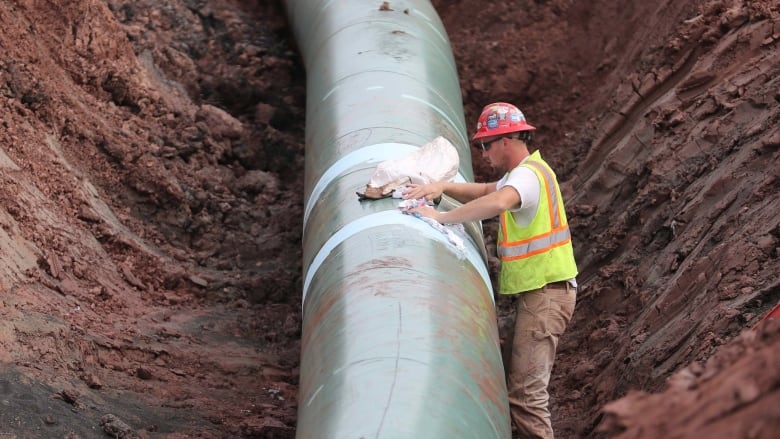Kinder Morgan expansion is 'last gasp of fossil fuel industry,' says activist
Tzeporah Berman suggests Canada is being conned by Kinder Morgan, 'an Enron spinoff'

As Kinder Morgan's deadline set for Thursday looms, pipeline opponents are determined to stop the project from happening by putting up roadblocks.
The company wants to be assured on May 31 that the project is viable and can go ahead without delay.
But Tzeporah Berman, an environmental activist and communications director for the advocacy group Stand, says Canada is being "played by the richest man in Houston — Richard Kinder."
"This is an Enron spinoff who in fact makes a living playing governments around the world," Berman told The Current's Anna Maria Tremonti.
"This is the last gasp of the fossil fuel industry," Berman said, adding the company wants to be seen as expanding in order to protect share prices and "we're falling prey to that."
Berman argued it's not a small minority that is "holding this project hostage."
"It's opposed by 19 municipalities. It's opposed by the majority of First Nations. It violates Indigenous rights and the Constitution and that's being ignored."

According to former Liberal MP Martha Hall Findlay, "the conspiracy element" of Bergman's position "is extraordinary."
"Every poll is showing that the majority of Canadians and now the majority of British Columbians, do want to see this pipeline," said Hall Findlay, who is also CEO of the Canada West Foundation.
She argued the demand for oil is only going to increase with population growth, and it doesn't come down to "some big rich guy in Houston."
"It is every person who drives a car. It is every person who heats their home," she said.
20th century pipeline battles
In the 1960s, farmers in southern Ontario were opposed to oil pipelines emerging because they were concerned about how the construction might effect the landscape, soil quality and drainage.
"They started to appear as intervenors at National Energy Board hearings as early as the beginning of the 1960s and really started to mobilize around the construction of the Sarnia-Montreal pipeline in southern Ontario," historian Sean Kheraj told Tremonti.
Kheraj, an associate professor of Canadian and environmental history at York University, explained how activists fought against the construction of a major trunk gas pipeline in the Mackenzie Valley in the north, and won.
Click the audio to hear Kheraj explain how opposition to the Mackenzie Valley pipeline unfolded.
Listen to the full conversation near the top of this page.
This segment was produced by The Current's Alison Masemann, Jessica Linzey and Geoff Turner.